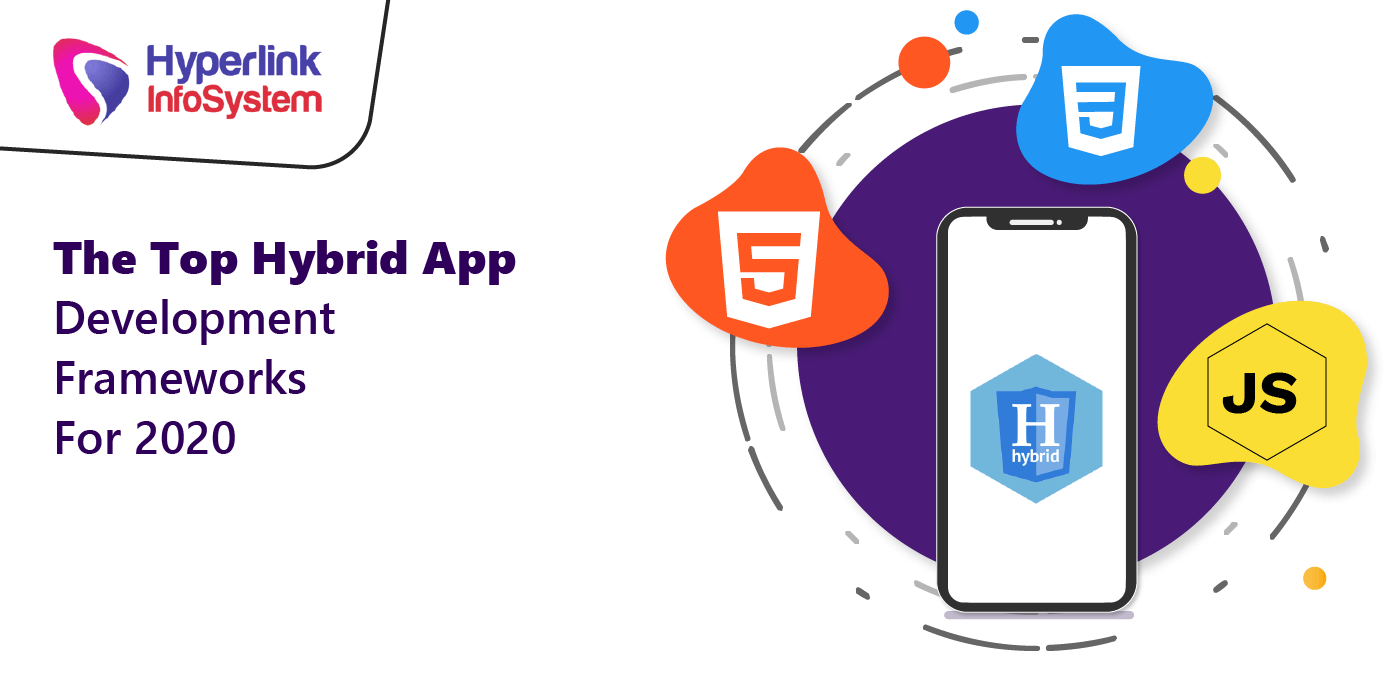�
The mobile app development companies have made their job easier with advanced technology in the mobile app sector. Your mobile app's effectiveness and performance depend on the ideal selection of a mobile app framework, technology, and databases. You must ensure your app works well on both the mobile devices, iOS, and Android platforms. Thus, hybrid and cross-platform app development has become essential, and mobile
app developers usa seek hybrid app development frameworks to make their work easier.
Each hybrid mobile app framework features a unique functionality and structure and is used to develop various applications. This article will cover a list of best frameworks used by businesses in this contemporary world.
Without further ado, let's move ahead!
1. Ionic
Ionic framework is mainly used for Hybrid mobile app development as it promises the highest speed of web development apart from offering a tailored experience resulting from better renders to the local portable application. The programmers use the Ionic framework for building apps by keeping note of HTML5, Javascript, and CSS measures.
Once the app is developed, it can be distributed over the app stores. The Ionic framework is Angular JS-based, allowing the developers to use a programming language like CSS, Javascript, and HTML5. The language also enables the developers to create interactive UIs and develop other features easily understood by the TA, thus propelling more traffic.
Pros
Better reliability
Faster development
Immaculate design
Robust extensions
Open-source framework
Improved development of intricate apps
Expandible technology
Drawbacks
Difficult app navigation
Weakened by JavaScript
Shortage of native plugins
Challenging debugging
2. React Native
React Native is taking the advancement of mobile apps with a storm. It is a Javascript framework used for building mobile apps by
android app development agency that can be used natively with both iOS and Android platforms. The framework is composed of the single Javascript codebase that permits the developer to reuse the code between iOS and Android.
Pros
Provides various automated tools
Automatic error detection
Easy UI
The programmer can modify the apps while running
Fast-track development process with simple functionality
Drawbacks
Absence of custom modules
Feature specific hardware flaws
Tough to understand by the amateurs
Inconvenient navigation
3. PhoneGap
PhoneGap is one of the most simple cross-platform frameworks used by most developers globally to build reliable apps. PhoneGap can develop apps within the native shell, which can be applied in several stores of various programming platforms. The framework is even supported by "Build," a cloud service that allows the collection of apps without using any SDKs.
Pros
Convenient to adapt for the users familiar with CSS, HTML5, and JavaScript
Provides much time to concentrate on UI
Does not need multi-platform verification
Compatible with iOS, Android as well as Windows7
Drawbacks
Less availability of UI widgets
Inferior performance compared to other frameworks
4. Xamarin
Xamarin is widely used by significant businesses worldwide to build scalable hybrid apps, be an open-source mobile app development platform, and more than 1.4 million active developers.
The platform runs on the "write once and run anytime" philosophy while the developers can use it to deliver a native feel to the apps.
Pros
Significant technical supporting tools rendered by Microsoft
Simple debugging on apps
Performance close to one offered by native apps
Reusable code to be used on iOS and Android both.
Drawbacks
Costly business license
Difficult integration
Supports only minimum technical components
5. Framework 7
Framework7 is the most desirable platform for app development, considering it's independent of AngularJS or React. The framework can be used to provide a native feel to the app using successful animations and other styling components. The developer only needs to know JavaScript, CSS, and HTML5 to work with Framework7 easily.
Framework7 is one of the most stable frameworks for hybrid mobile apps used by businesses in the world.
Pros
Simple customization
No outer reliance on React or Angular
Apps enriched with multiple UIs available
Drawbacks
The framework7 has been amalgamated with Cordova or PhoneGap for package emulations
Not well-matched with all mobile devices
6. Mobile Angular UI
It is one of the platforms that is developed strategically with the support of Angular JS and Bootstrap. This platform permits the developers to create exciting HTML5 apps with the best features of Angular and Bootstrap3. This framework can be used as the extension of Bootstrap3, although it doesn't feature its reliance.
Pros
Provides overthrow.js and fastclick.js for delivering a pleasant mobile experience.
Free to use by the programmers
Open-source platform
Drawbacks
Inferior performance because of internal reliance on Bootstrap3.
7. jQuery Mobile
jQuery is one of the desired platforms used by businesses that provide only generic apps that run consistently on multiple platforms, such as Windows, Symbian, and more.
The platform works on the "Bring Your Own Device" concept. Mobile doesn't try to embrace native look like it's other competitive platforms while creating its own identity.
Pros
Steady environment
Provides development of responsive apps
Simple development phase
Smooth and user-friendly
ThemeRoller enables making tailored themes.
Drawbacks
Needs overwriting of code when it comes to creating custom apps
CSS associated problems with HTML themes for tailored app development
Difficult .Net interaction
8. Onsen UI
Onsen UI is one of the most appropriate open-source frameworks that smoothly runs without AngularJS needs. The developers can use detailed documentation that is available with the framework to know its features, structure, and more. It helps in making interactive apps that deliver a native feel.
Pros
User-friendly
Cost-effective
Open-source framework
Well-matched with jQuery and AngularJS
Drawbacks
Needs a long time for a template upgrade
Does not offer templates on GitHub
Final Thoughts
Many hybrid app development frameworks are available today. Today, the app developers have too many options to choose the one that best suits them. This article covers the top 8 hybrid app frameworks with pros and cons, to make it easier for you as a developer to make informed decisions depending on the type of mobile app you are developing for an organization.

























